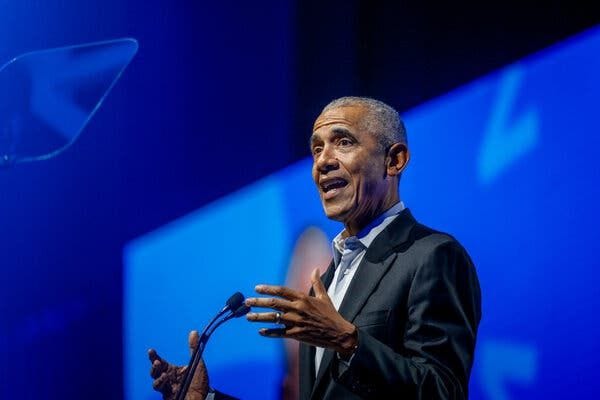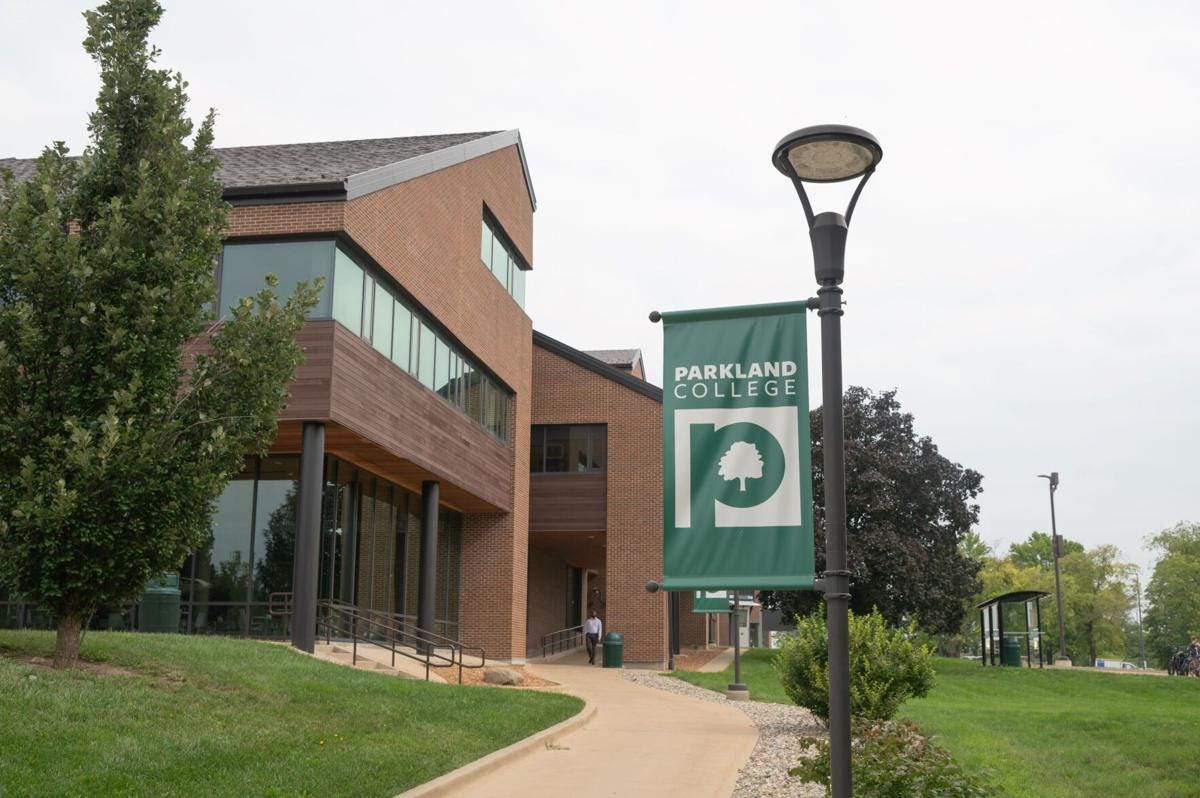Billions for Colleges, Breadcrumbs for Us
Should taxpayers fund colleges while everyday Americans struggle to survive?
Danielle, a 32-year-old waitress, works double shifts to support her 4-year-old daughter, Sophia. Childcare costs $900 a month, nearly half her income. She applied for assistance from the state’s childcare program but was denied due to its limited availability. With no family nearby, she leaves Sofia with a neighbor, constantly worrying about her safety.
James, a 45-year-old Army veteran, completed two combat tours in Afghanistan and has struggled with PTSD since returning home seven years ago. Anxiety and lack of sleep impact his job, but the nearest VA clinic is three hours away, and telehealth appointments are limited and not much help to begin with.
Mark, a 55-year-old farmer, faced a health scare when chest pains struck last month. His local hospital closed two years ago, and the nearest emergency room is a 90-minute drive. Rural healthcare grants didn’t reach his county, so ambulances are few and far between.
But it’s not all doom and gloom.
Last year, the President of Harvard University was relaxing on his yacht when his phone rang. It was his assistant confirming that the school had secured another $686 million in taxpayer money.
The president of the University of Texas at Austin was snoozing on a private jet en route to St. Barts island in the Caribbean last year when an email informed him that the school received about $645 million in taxpayer-funded grants.
The top dog at Yale took a bite of his foie gras at the French Laundrie as his VP of Finance casually mentioned they had cleared $900 million in federal benefits.
All thanks to us, the American taxpayers.
We often complain about our tax dollars going to endless wars, supporting other countries, or non-citizens at home.
But we forget how much of our hard-earned cash ends up at super-rich college institutions, many already sitting on billions they’ve collected over the years, through tuition, donations, and, of course, federal grants.
Recently, we’ve seen headlines about Trump freezing federal funding to high-end colleges due to compliance issues, such as administrators refusing to remove DEI policies from their handbooks.
As a result, more people are asking: Why are we giving these elite schools any tax money at all?
Now, although Ivy League presidents make beaucoup bucks, I don’t know whether they have yachts or private planes, but that’s not the point.

A recent study by the watchdog organization Open The Books revealed that the US's most elite universities have received a mind-blowing $45 billion in taxpayer money since 2018 alone.
Does this sound right?
Argument: Taxpayers Should Fund College Education
Higher education cannot be a luxury reserved just for a privileged few. It is an economic necessity for every family. And every family should be able to afford it. -Barak Obama
Main Points
Increased Access
Economic Benefits
Global Competitiveness
Social Progress
Point #1: Increases Access
We all know the debt baggage that comes with college. By subsidizing education, we could make it affordable, or possibly free. This way, lower-income students could pursue an education without the fear of long-term loans holding them back.
Traditionally, only the upper class could attend college, while less fortunate individuals had to join the military or obtain a scholarship to receive a free or discounted ride.
Point #2: Economic Benefits
The more people who go to college, the more skilled our workforce will become. This drives innovation, creates jobs, and, in turn, increases future tax revenue through higher productivity.
A 2024 study published in Humanities and Social Sciences Communications analyzed data from 38 countries. It found that populations with higher education levels make significant contributions to GDP growth through technological innovation.
Point #3: Global Competitiveness
While Americans pay an arm and a leg for college, other countries are becoming increasingly competitive by offering free tuition to EU students in places like Germany, France, and Finland.
As Americans are limited in higher education, the global workforce and innovation will eventually surpass that of the United States. Federal grant money also funds scientific breakthroughs in cancer, autoimmune diseases, and the development of rapid-charging batteries.
Point #4: Social Progress
Enrolling in college can improve the economy and national strength, as well as enhance daily social interactions. When people are educated, they’re financially better off and understand the world around them in ways they couldn’t otherwise.
Studies show college graduates are more likely to vote, promote equality, and contribute to cultural enrichment. We can also relieve burdens on the healthcare industry, as college graduates are more likely to live healthier lives by eating better and taking care of their mental and emotional well-being.
Rebuttal: Taxpayer Funding for Education Should Be Limited
In higher ed, more tuition fees and government subsidies have funded armies of new non-academic employees, hordes of diversity specialists, fund raisers, publicity hacks, assistant deans, not to mention atriums, lazy rivers and this year’s spending fad, esports. -Richard Vedder, American economist
Main Points
Wealthy Colleges Don’t Need It
Funds Are Misallocated
Unfair Burden on Taxpayers
Better Uses for Funds
Point #1: Wealthy Colleges Don’t Need It
Here are the top 5 richest US colleges by endowment:
Harvard ($51 billion)
The University of Texas ($47 billion)
Yale University ($41 billion)
Stanford University ($37 billion)
Princeton University (34 billion)
The average tuition at Harvard is ~$60 K, at Yale, ~$67K, and Stanford, $62K. Why are we giving taxpayer funds to these ultra-rich tax-exempt institutions while they continue to collect millions in tuition, room and board, books, and meal plans?
These schools are also massive landowners.
Point #2: Funds Are Misallocated
Yale, Brown, and other Ivy League schools face lawsuits for allegedly overcharging students through fixed financial aid. Columbia and NYU use tax-exempt status to hold commercial properties. But it gets more sinister.
In Operation Varsity Blues, school officials at Yale, Harvard, and other prestigious institutions accepted bribes disguised as charitable donations to secure admission for the children of wealthy parents.
Lesser-known for-profit chains, such as Corinthian Colleges and ITT Technical Institute, systematically misappropriated federal student aid (Title IV funds) by falsifying job placement rates, inflating costs, and diverting funds to marketing and executive pay, ultimately costing taxpayers billions.
Lone wolf fraudsters, such as the esteemed Dr. Charles L. Bennett from Northwestern University, used our tax dollars from 2003 to 2010 for personal expenses, including dinners, hotels, and travel.
Point #3: Unfair Burden on Taxpayers
Whether colleges systemically commit tax fraud or do so individually, it's all courtesy of you, on top of everything else we pay for, such as a bloated healthcare system, war, and all the nonsense DOGE found.
If, as claimed, more educated people meant a better society, then more might be willing to fit the bill. However, more people have access to education than ever before, yet our economy and standing on the global stage are not reciprocating.
Low-level workers shouldn’t be expected to subsidize colleges while struggling families and individuals are forgotten.
Point #4: Better Uses for Funds
While ultra-rich colleges continue to rake in billions, schools that actually need help and provide real-world skills collect peanuts in comparison.
Community colleges and trade schools open up job opportunities after graduation at a fraction of the cost of elite universities or even state colleges that offer nonsensical degrees, such as folklore, queer studies, or feminist theory.
There are also plenty of K-12 schools with students who genuinely need help learning to read.
Defund Big College!
Danielle is at her wits’ end as childcare soars to $1,000 a month. Still on an 18-month waitlist for assistance, she continues to leave her daughter with unreliable neighbors. Racked with stress while serving tables, she falls closer to financial and emotional ruin.
James’ future continues to darken as criplling anxiety and nightmares keep him from working and getting proper assistance. He’s made multiple claims to the VA, but there is a long waiting list, and he cannot continue to make the six-hour round trip to the nearest clinic.
Mark looks out over the farm his family has maintained for generations. Even with a Life Alert bracelet, the chances of a distant ambulance reaching him and transporting him to the ER 90 minutes away are slim. With little chance of rural healthcare grants and deteriorating health, another incident could leave his family and legacy in the dust.
You can argue about where funds do or don’t come from, as well as the differences in red tape between college funding and childcare, veteran support, or rural healthcare. But in my opinion, no amount of explanation excuses funding billion-dollar elitist colleges while everyday Americans struggle to grind through life, especially considering they’re paying for it.
I believe we should freeze all funding, or at least significantly reduce it, regardless of whether colleges suspend their DEI policies.
From here, it looks like a racket. Yes, more college graduates is better for society, and increases global competitiveness, but only if they’re teaching tangible skills.
But what's really broken isn’t the American school, it’s the American home. Everyone has a degree, and they’re mostly useless. Perhaps we should help out people like Danielle, James, and Mark, for a change, and see where that takes us.
GB
Meme of the Week:
Brand of the Week: Taylor Made Organics

Taylor Made Organics is helping to Make America Healthy Again! Naturopathic Doctor Christy Teter founded Taylor Made Organics in 1997 to naturally nourish skin and boost confidence.
Based in Port Republic, VA, this family-owned operation crafts natural foaming cleansers, pigmented lipsticks, and fragrances, all of which are free from sulfates, parabens, and synthetics.
Head to taylormadeorganics.com today for free shipping on all orders over $99!
American of the Week: US Army SFC Paul R. Smith

On April 4, 2003, near Baghdad International Airport, Sergeant First Class Paul R. Smith heroically led a defense against a company-sized enemy attack on his unit.
Despite intense enemy fire, he organized a hasty defense, personally engaged the enemy with grenades and anti-tank weapons, and evacuated wounded soldiers.
Braving the constant fire, he manned a .50 caliber machine gun, maintaining an exposed position to repel the enemy.
Mortally wounded, he defeated the attack, killed up to 50 enemy combatants, and enabled the safe withdrawal of numerous wounded.
His extraordinary heroism earned him the Medal of Honor. He left behind his wife, Birgit, and his children, David (9) and Jessica (17). He was 33 years old. Remember Paul today.











